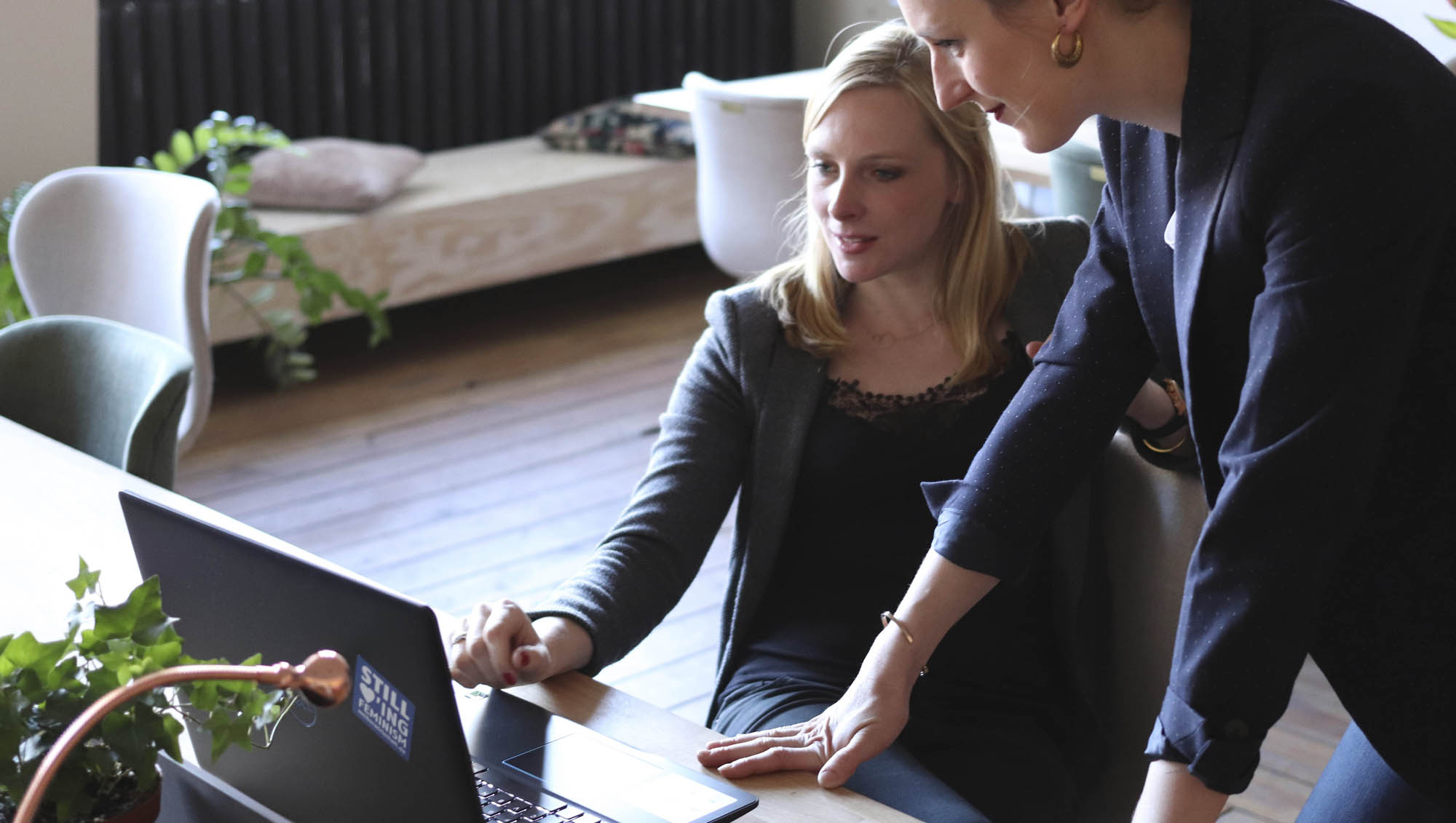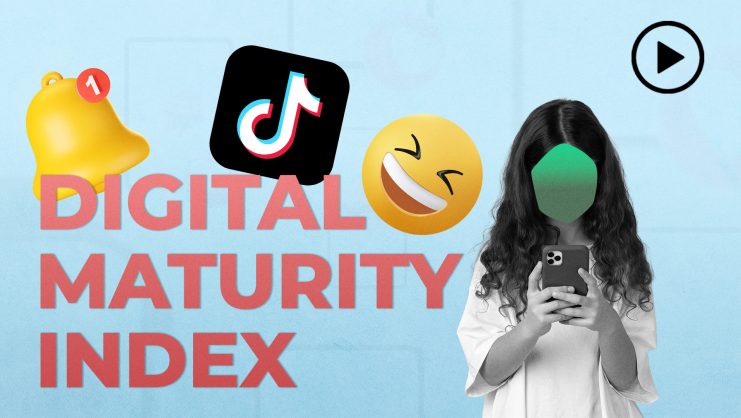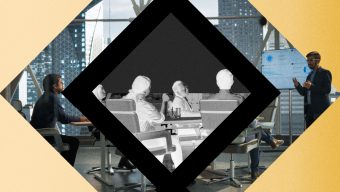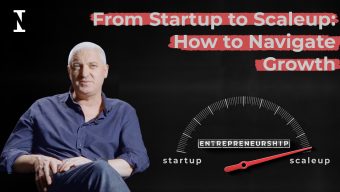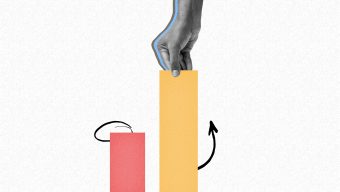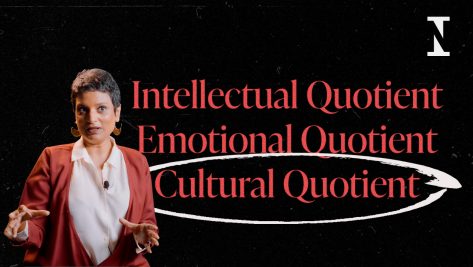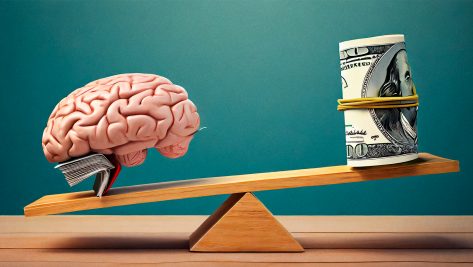A recent report by McKinsey & Company (Women in the Workplace 2018) shows that women have done their homework: they now earn more degrees than men, they ask for salary increases more proactively and they negotiate compensation packages at the same rate as men. However, they are still underrepresented at every level of management in their companies and the number of women in senior positions has remained stable for the last five years. There is an urgent need to do more and to do it differently.
To learn more about women and leadership, we have the privilege of speaking with Sophie Le Ray. Sophie is a successful leader and entrepreneur who in 2003 cofounded Naseba, a company that facilitates business development in emerging markets. She is the co-author of the book Game Changers: How Women in the Arab World Are Changing the Rules and Shaping the Future, published by Motivate Publishing in May 2016. She is also the founder and spokesperson of the Global WIL Economic Forum, an annual platform that promotes women’s leadership. This year’s edition of the forum will take place in Dubai in October 2019.
What is the Global WIL Economic Forum and what motivated you to launch this initiative back in 2009?
The forum was founded in Dubai with the goal of offering a platform for professional women in the region and challenging stereotypes about Arab women. Over the years, it has grown from a small network to a purpose-driven community—of both women and men—focused on positioning diversity and inclusion as key elements of sustainable economic development for corporations as well as societies. As the forum grew, so did its global reach. Soon it will incorporate a global digital platform with year-round content and regional events. To date, the forum has been held in Saudi Arabia, India, Malaysia, and China.
At the current rate of progress, it is now estimated that it will take more than two centuries—217 years, to be exact—to achieve gender parity at the global level.
There seems to be momentum for women’s empowerment right now. Do you feel that values and attitudes about gender in professional contexts are changing definitively? What has been your experience in the Middle East and North Africa over the last 15 years?
Yes, I do think we are seeing a change. However, the gender-gap index suggests that progress is not only stalling but declining. The previous forecast indicated that it would take 170 years to close the gender gap. However, at the current rate of progress, it is now estimated that it will take more than two centuries—217 years, to be exact—to achieve gender parity at the global level.
Despite the bleak data, one reason why I remain optimistic is the rapid pace of advancement that, paradoxically, we are currently seeing in my region. The rate of progress is much higher than in the past. The momentum is so strong that the region is leading, albeit quietly, many of the battles of women’s economic empowerment worldwide. In the near future, the region could even become a role model for Western societies.
I believe that the Gulf Cooperation Council governments have tackled this issue in a very pragmatic and intelligent way, on the fiscal front. The business case for women’s empowerment is so prevalent that it is a matter of smart governance to promote it. And when a society (or a company) is healthy and growing sustainably, members of society (or employees) are more engaged and less prone to radical ideas or disengagement.
The data tell an interesting story. For example, women’s participation in the workforce ranges from 15% in Kuwait to 63% in the United Arab Emirates. Nearly 30% of the UAE cabinet is female—almost the same as in the United Kingdom and higher than in the United States. Also in the UAE, 66% of senior public-sector officials are female and nearly half of all small and medium-sized enterprises in the private sector are led by women. According to the United Nations, women also account for over 70% of university graduates in the UAE and 46% of graduates in the fields of science, technology, engineering, and mathematics.
In Saudi Arabia, the government’s vision for 2030 involves putting a significant framework in place to support women in the workplace. At present, women outnumber men at Saudi Arabian universities by a factor of 2.5.
While the Middle East and North Africa remains the worst region for gender equality, it is showing progress. According to the World Economic Forum, the region has closed its gender gap by more than 60% for the second year running, and 11 countries have improved their overall gender-equality score.
When a society (or a company) is healthy and growing sustainably, members of society (or employees) are more engaged and less prone to radical ideas or disengagement.
According to the 2018 State of Women-Owned Businesses Report, the number of women-owned businesses has increased by 3,000% since 1972. Why do you feel that more women are turning to entrepreneurship as a career path?
In my case, flexibility and the freedom to develop my career on my own merit were key motivators. What I see around me is that the desire for entrepreneurship is growing in both genders, especially among members of the new generation. This trend will only intensify as digitalization increases and old workplace models are totally reinvented. There will be more freelancing and remote work, combined with the constant renewal of skillsets through continuous learning. Organizations are becoming more flexible and agile, and microentrepreneurship is clearly on the rise.
What advice would you give to women who are thinking about starting their own business? Would you give the same advice to women in Europe as you would to women in the Middle East and North Africa?
When it comes to entrepreneurship, my advice is gender-neutral: Make sure you fully commit to your big vision. This will enable you to overcome any hurdles or pain you may encounter along the way. A business can morph or even die, and the entrepreneurs running it might change, but the main idea—the purpose—must be maintained throughout. This is essential when it comes to making decisions and being resilient in challenging times.
One specific challenge facing women entrepreneurs around the world is access to capital, although the data show that women-owned businesses are generally very profitable. If, as a society, we want to support women’s entrepreneurship, we must overhaul the funding ecosystem and promote gender equality in venture capital, banking, grants, public funding, etc.
You have an interesting cultural background. You were born in France to parents from different cultures. How did your early childhood influence your leadership style?
My mother is Portuguese—born and raised in Angola—and my dad was French. My extended family lived in Brazil and different parts of Africa, so I can say I was raised in a multicultural environment. It certainly shaped my worldview, especially since we travelled constantly and hosted friends from all over the world. When I became an adult, I couldn’t wait to study abroad. I chose ancient cultures as my undergraduate major. Culture fascinates me; it has certainly led me to what I do today. I am not the archeologist I initially thought I would become, but I have been lucky enough to travel extensively, to live in many countries, and to work with people of more than 30 different nationalities. This has quenched my thirst for adventure and discovery. As a leader, I think it has opened my mind to different ways of thinking and operating; it has made me more flexible and agile.
A business can morph or even die, and the entrepreneurs running it might change, but the main idea—the purpose—must be maintained throughout. This is essential when it comes to making decisions and being resilient in challenging times.
Finally, people’s hobbies and leisure activities—the things they choose to do most freely—are a good reflection of their personalities and values. What does Sophie Le Ray do in her free time, and what does it say about her?
I am an avid learner, so I read a lot and listen to lots of podcasts. I don’t remember half of what I read, since I’m always reading several books at once, but that’s okay.
As you have probably gathered, I love to travel, especially when it involves learning something: attending a seminar, visiting a monument, discovering a new culture, or taking a road trip. I absolutely love road trips!
I also mentor young entrepreneurs and am part of the counseling team in my church. I enjoy collaborating with people, helping them sort out their junk as they move forward in either their business career or their spiritual journey.
Finally, I love to cook. As a vegetarian, I’m always trying to learn how to make vegan dishes. I like showing my friends that it’s possible to eat responsibly and healthily while still enjoying great food.
© IE Insights.



